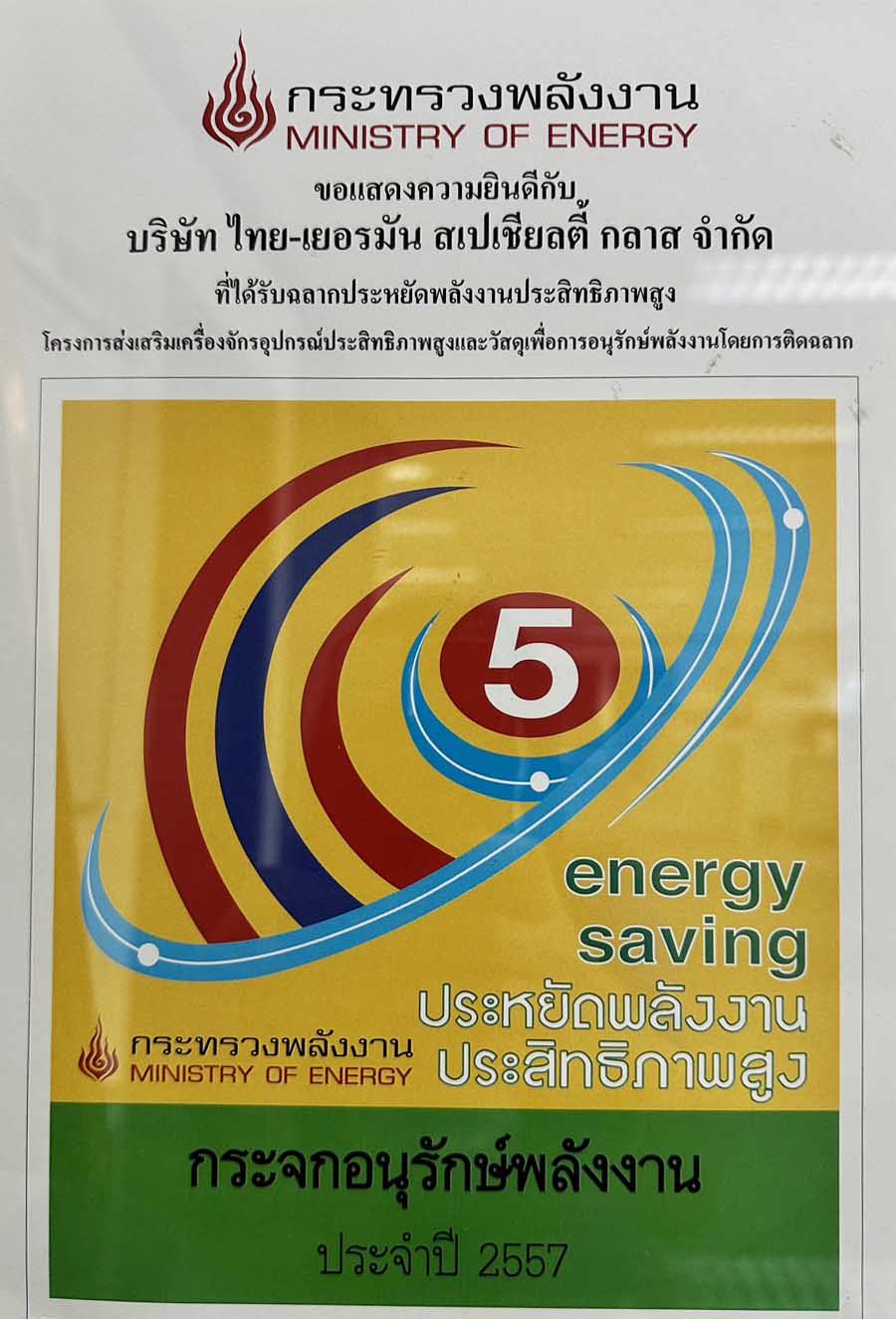

Apart from electrical appliances with energy-saving labels number 5, now glass has also developed with high-efficiency labels.
Energy-saving glass here refers to glass coated with energy-saving substances or coated glass. Green, blue, or other colored glass can also save energy similarly, but it cannot match the efficiency of coated glass. Coated glass comes in two types:
Low-e glass and Reflective glass.
Besides providing a comfortable coolness inside the room and effectively reducing the operation of air conditioners, it also helps reduce electricity costs and further saves energy. Moreover, if high-efficiency glass is installed and used in a room with an area of 30 square meters, operating the air conditioner for 6 hours a day, 300 days a year, will save 1,207 kWh of energy per year, resulting in a savings of 3,621 baht per year.
Source: [http://www.manager.co.th/iBizchannel/viewNews.aspx...]
Laminated glass is a type of safety glass that holds together when shattered. In the event of a break, it is held in place by an interlayer between its two or more layers of glass. The interlayer keeps the layers of glass bonded even when broken, and its high strength prevents the glass from breaking up into large sharp pieces.
"Annealed Glass" (also called "Floated Glass") is mainly used to describe the glass-cooling process that is performed at a fabricator's float plant. It is not treated with heat, unlike tempered glass. It allows 80-95% of the light transmittance.
The differences between the two glasses are the cooling process and breakage pattern. Tempered Glass has high mechanical strength and is 2-3 times stronger than Heat Strengthened Glass.
With tempered glass, the cooling process is accelerated to create higher surface compression. This is the process that makes "Tempered Glass" 4-5 times stronger and safer while Heat Strengthened is 2-3 times stronger than annealed or untreated glass.
Spy Mirror also called "One-Way" that appears reflective on one side and transparent at the other. The perception of one-way transmission is only achieved when coating side of the mirror is brightly lit and the other side is dark (Average 8:1). This allows viewing from the darkened side but not vice versa.
Noise Pollution is the major concern when you choose NCG Series. The High Performance NCG Glass can be determined from "STC Rating, Glass Thickness and Glazing system. The glass you choose does make a difference, both in the outcome as well as in how much the soundproofing will cost.